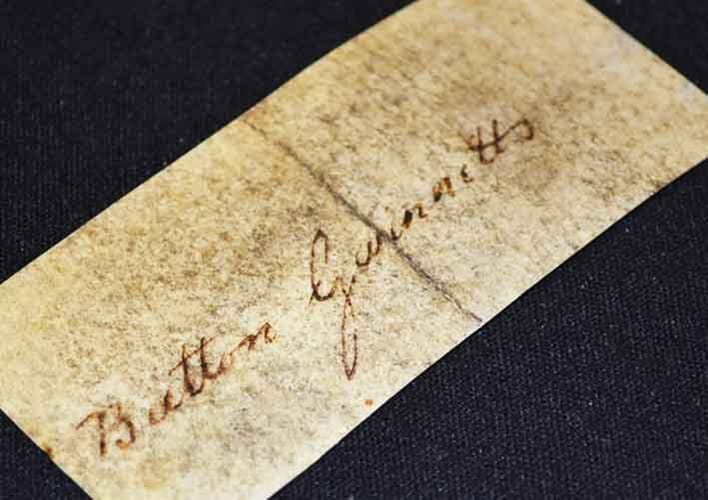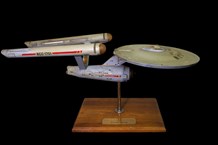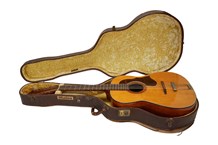
He soon discovered that this 8 x 3.5cm clip of paper carried the name of a colonial politician who has entered collecting legend as the one signer of the Declaration of Independence who apparently left precious little paperwork to posterity.
The ultimate in American autograph collecting, it comes up for sale at Mullocks of Church Stretton, Shropshire on October 20 with an estimate of £60,000-80,000.
Much of the appeal in collecting the signatures of all 56 delegates to the Second Continental Congress in Philadelphia - better known as the signers of the Declaration of Independence - lies in the characters behind them. Not all of them were men of great deeds.
As 19th century philographers soon discovered, it was the largely forgotten political figures - many of them from the Southern states - that presented far great collecting challenges than those posed by the likes of John Adams, Benjamin Franklin, and Thomas Jefferson, who had lived long and written copiously.
Gwinnett's Duel
That the memorably-named Button Gwinnett (1735-1777) of Georgia met an abrupt and unexpected end is part of his fame. Returning directly to Savannah after signing the Declaration, this son of a Gloucestershire minister succumbed soon afterwards following wounds sustained in a duel with a political rival. Only 51 examples of his signature have survived - most of them attached to unspectacular documents such as mortgage deeds, receipts and debtor's notes rather than state affairs - and that defines the maximum number of full sets of the Signers that can theoretically exist.
When, in the early 20th century, collecting the Signers began a craze, a kind of mania emerged around Button Gwinnett. In 1924, at a time when a good Jefferson letter might bring $100-200, $14,000 was paid for a Gwinnett mortgage deed dated April 25, 1770.
A severe correction in the value of American historical manuscripts in general, and Gwinnett documents in particular, followed the stock market crash of 1929 and the onset of the Great Depression.
The market for American historical autographs did not fully recover until the early 1970s, when the impeding Bicentennial once again generated interest in the Declaration signers among well-heeled collectors, dealers and museums.
The example of Gwinnett's signature at Mullocks first emerged in 1971. It was one of two copies of the signature discovered within a collection of mutilated documents by manuscripts dealer Ralph Newman. They are the last examples of Gwinnett's autograph to surface and are numbered 50 and 51 in the 'census' of his known signatures. As documented in an original typed letter that accompanies the lot, the vendor's father, a former president of the North Missouri Historical Society, bought it shortly afterwards in deal that exchanged a desk set belonging to Abraham Lincoln, letters written by the 16th President during his time in Illinois and $25,000 in cash. It has been on view in the archives of the historical society since 1993.
Who was Button Gwinnett?
Button Gwinnett was born in 1735 in the parish of Down Hatherley in Gloucestershire, the son of Reverend Samuel Gwinnett and his wife, Anne.
He started his career as a merchant in Wolverhampton but left for America in 1762, settling first in Charleston, South Carolina, and, by 1765, as a plantation owner in Georgia. He was elected to the Provincial Assembly in 1769 and voted in favour of independence, signing the famous parchment on August 2, 1776, and later penned the original draft of Georgia's first State Constitution in 1777 after becoming President of the Congress and commander-in-chief of Georgia's militia.
However, a bitter rivalry with chief political foe Lachlan McIntosh was to be his undoing. Following a failed invasion of British-controlled East Florida, McIntosh publicly called Gwinnett 'a scoundrel and lying rascal'. Gwinnett then challenged McIntosh to a duel, which they fought - exchanging pistol shots at 12 paces - on 16 May 1777.
Gwinnet died of his wounds three days later, aged 42.





